Uploaded your design file to our website and can’t select a material because the options are greyed out?
Often, sheet and plate materials can’t be selected in our pricing system because the overall flat part size is too large or too small for the material. You may also be restricted to selecting billet material if you upload a STEP/STP format file with a model of a part that includes 3D features requiring CNC machining. If you need your part laser cut, waterjet cut, or CNC routed from sheet or plate material, ensure your design meets our 3D file guidelines.
Read on to learn how to address material selection issues. If your overall part dimensions don’t look right after uploading your part, our tips here can help with that, too!
1. Ensure sheet and plate parts meet 3D file guidelines, and billet parts meet CNC machining guidelines
If you upload a STEP/STP format file and only see the option to select billet material, this is usually due to
- a model including 3D features that would require CNC machining to produce
- a model having a thickness greater than our thickest available sheet material
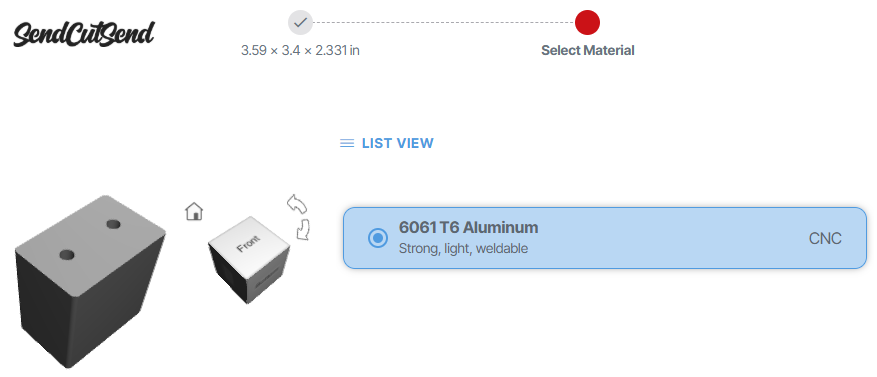
If you need your part laser cut, waterjet cut, or CNC routed from sheet or plate material, refer to our 3D file guidelines for STEP/STP format files. Sheet and plate parts must be modeled as sheet metal bodies with no dimensional features.
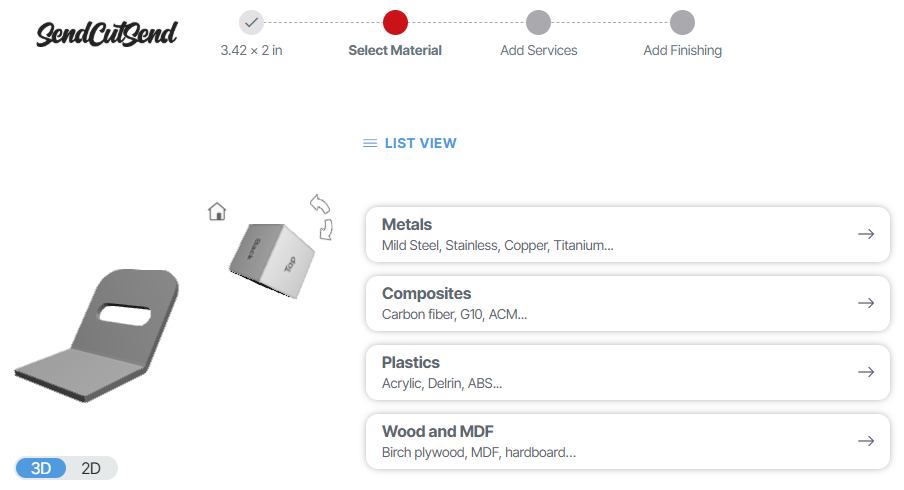
Alternatively, consider exporting your sheet or plate part model as a DXF to ensure you can select a flat stock material. Take a look at our tutorials for export guidance from top CAD software.
2. Update your part to meet our size requirements
In order to produce high quality parts consistently, we have minimum and maximum size requirements.
Sheet and plate material overall flat part size requirements by material thickness
Our overall flat part size requirements for sheet and plate materials are set per material thickness. If your parts require bending/forming services, these limits apply to the flat material before it is bent.
You can confirm sheet and plate part size limits on individual material pages in our Material Catalog, or in our handy charts.
Material Catalog details and specifications
Flat part size limits for each sheet or plate material stock thickness can be found on the pages in our Material Catalog.
Learn more about how to confirm specifications for sheet and plate materials.
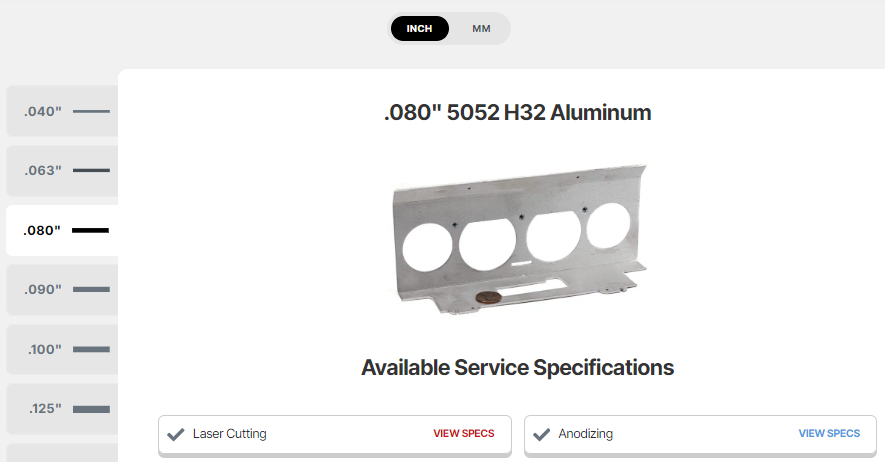
Flat stock material size limits for cutting and post processing
- Material Minimum and Maximum Part Sizes for Cutting
- shows size ranges and cut method by material
- Material Minimum and Maximum Part Sizes for Processing
- shows size ranges we can produce in eligible materials for all of our post processing services
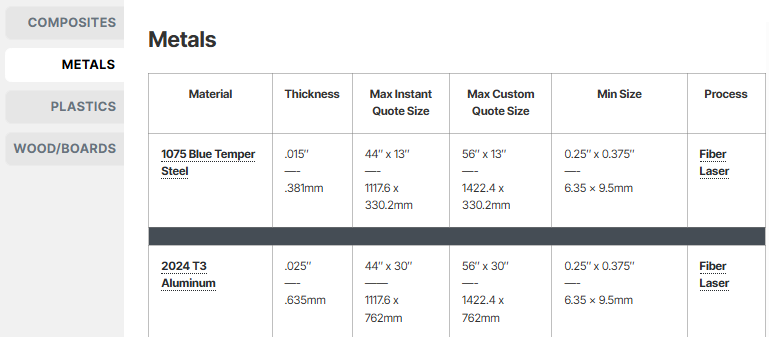
If your project requires larger parts, you can request a custom quote!
CNC machined billet overall part size requirements
Confirm our CNC machined part size requirements in our CNC machining guidelines.
3. For pre-nested vector format files, remove any small parts that do not meet our flat part size requirements
Does your vector format file include sheet or plate parts that are too small for us to cut (such as the dot on a lowercase letter i) ?
If so, remove remove pieces that are too small to cut in the sheet or plate stock you need. Then upload your revised file. You should then be able to select the desired sheet material.
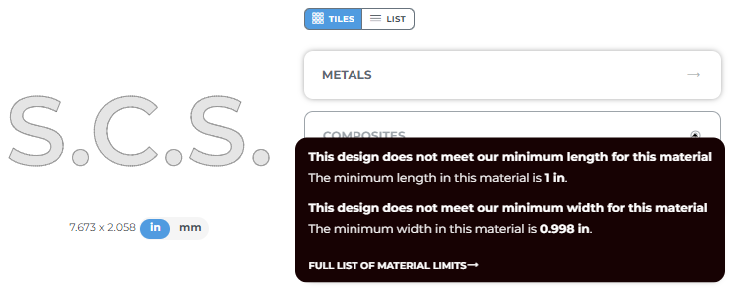
We have guidelines for uploading pre-nested vector files available: Nesting Guidelines
Tip: sometimes vector files have stray lines or entities due to a bad export. Stray entities can be detected as tiny ‘parts’ and prevent you from being able to select a sheet material. Double check your file to ensure it is free of entities and try exporting your file again. See our CAD export tutorials for help if needed.
4. The units of measurement in your design file are not inches or millimeters
We require either inch or millimeter units, so if your file is saved in centimeters or meters the sizing recognized by our system will be inaccurate.

5. The design is not saved at 1:1 scale
Please send us your design at the exact size you want it cut.
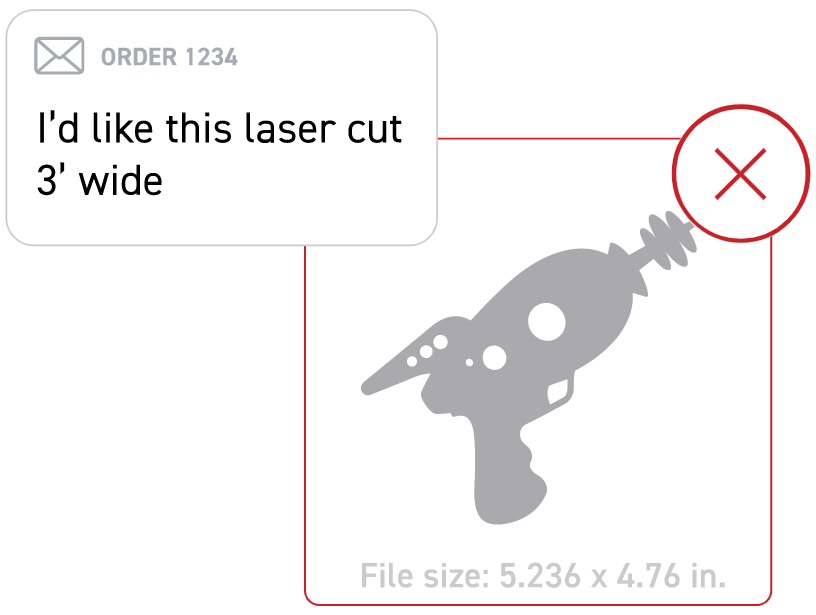
6. The units set for your part do not match the units in your design file
If the units do not match, our system will register your overall part size incorrectly and notify the part is too small for us to cut. You can easily update the units for your part from the Parts tab while logged into your account. Click the units indicated for your part to switch from mm to inches or vice versa.
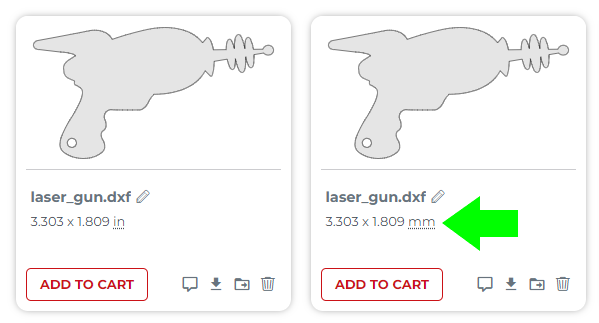
You can set your preferred unit of measurement (inches or millimeters) on our website in your account by ticking the Set As Default box when you change units for a DXF, DWG, EPS, or AI (Adobe Illustrator) file to your account.
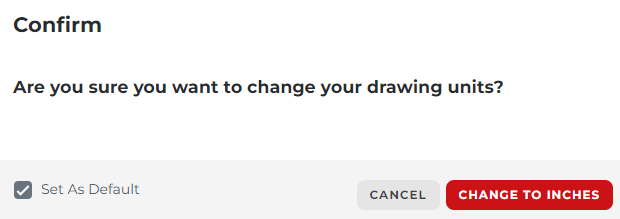
Please note: it won’t be possible to change units for STEP/STP files in your account; part dimensions are shown as inches by default. If your STEP/STP format file is set up in millimeter units, the part size shown should still be correct although it will be converted to inch units.
7. Your part is not oriented parallel to the X axis in your file
Your part’s overall dimensions will be interpreted most accurately if you orient the part parallel to the X axis in your design file.
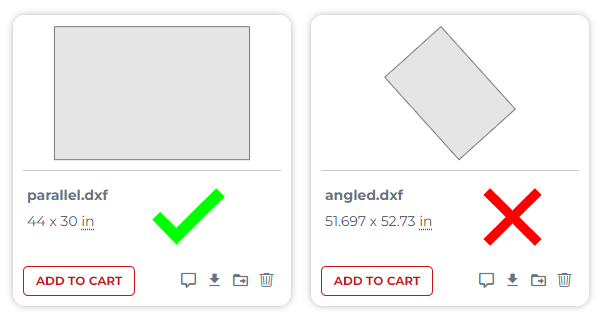
8. We don’t yet carry the material
Is there is a material or sheet thickness you’d like to order but you don’t see it listed? Request it through our Material Suggestion Form! Please note; we’ll do our best to add your suggestion to our catalog, but submitting to the form does not guarantee we can add the material to our stock.
If you still cannot select the material you need after troubleshooting, revising, and re-uploading your file, please feel free to contact our Support team. Let us know which design program you’re using, the overall dimensions of the part at 1:1 scale, and attach the file to your message. We’ll be happy to check it out!